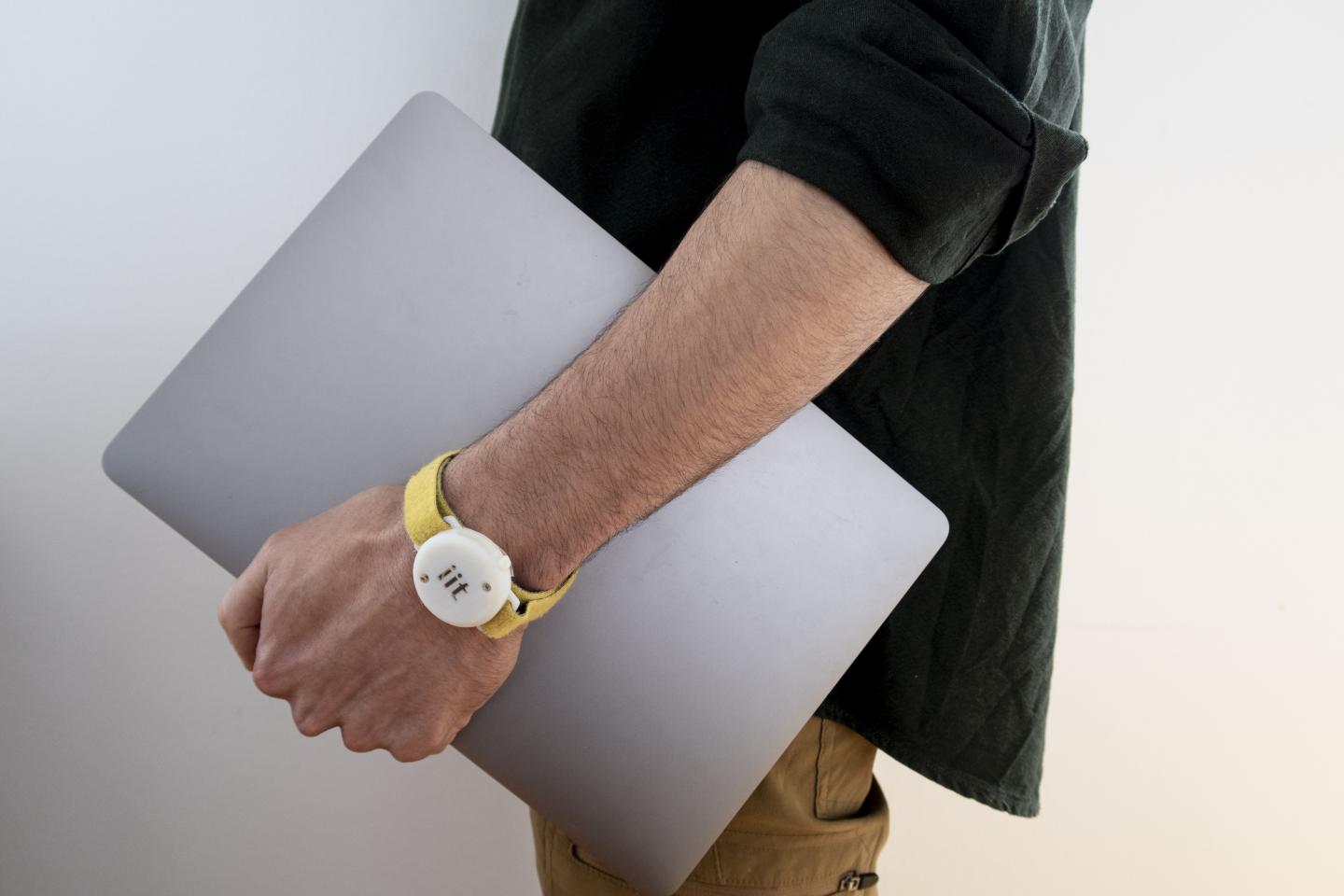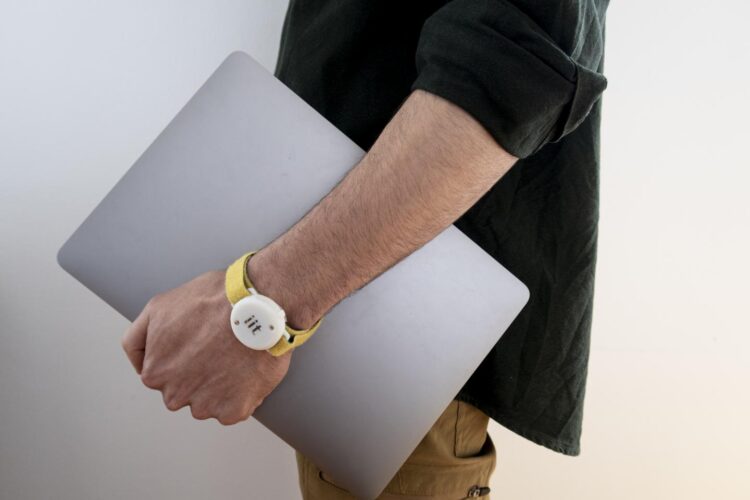The prototype originates from the research results at Istituto Italiano di Tecnologia in the framework of the European-funded project An.Dy. Its further development will be possible with the support of interested companies and investors

Credit: IIT-Istituto Italiano di Tecnologia
A wearable smartband to support people in dealing with COVID19 pandemic at work or in everyday life: this is the prototype, called iFeel-You, that researchers at IIT-Istituto Italiano di Tecnologia developed using their expertise in designing sensorized suits capable of monitoring human body parameters. The smartband is able to alert users when their body temperature is higher than 37.5 degrees and the distance to another person is too close to be safe.
The prototype originates within the framework of EU-funded project An.Dy (coordinated by IIT) and exemplifies one of the IIT’s commitments to face COVID19 pandemic by introducing new technological solutions that can be useful to industries, companies and to the society at large.
The smartband prototype was realized by the IIT’s Dynamic Interaction Control Lab in Genova (Italy) coordinated by the researcher Daniele Pucci; the research group is specialized in the control of the humanoid robot iCub and in the design of wearable devices for monitoring human body parameters in human-robot collaboration scenarios. The bracelet, in fact, uses algorithms and technologies that researchers introduced in a former sensorized suit, the “An.Dy sensorized suit”, that can detect and measure the whole human body posture – even during fast and dynamic motions – and the human fatigue in daily working activities. The bracelet prototype embodies these technologies, which are adapted to design solutions to emergency problems and needs.
While reading the movement of the human body, the smartband releases radio signals from which the distance from another bracelet can be retrieved; when two smartbands are in proximity, they vibrate, thus emitting an alert signal that helps people respect social distancing. The frequency of the radio signal is 2.45 GHz, the same of Bluetooth, but IIT developed a proprietary protocol for an easier and faster detection of human proximities. Therefore, a future development of the smartband can devise mobile apps that communicate with the bracelet using classical Bluetooth. Furthermore, the smartband iFeel-You is able to memorize the unique identifier of the bracelet that broke social distancing, thus allowing to reconstruct, in the case, the proximities of a person that will test positive to the SARS-CoV-2 infection. At the same time, the bracelet electronics is equipped with a medical temperature sensor capable of detecting a body thermal variation of 0.2 degree Celsius, allowing users to quickly diagnose one of the main symptoms of COVID19. The smartband is powered by a battery that lasts more than 8 hours during common operations, and it can be recharged wireless. Researchers are now working on a second prototype, which aims at making the smartband lighter, more ergonomic, and smaller.
The prototype was designed to find a practical and cost effective solution to help people respect social distancing during work and other activities, especially when lockdown restrictions will be lifted in Italy, and eventually, in other countries. Therefore, the final device could be used indoors, in factories and offices, but also outdoors and in places where the access needs a pass. Particular domains of applications of the smartband iFeel-You consist in all those activities where smartphones and thermal cameras are not viable solutions, such as tourist villages, resorts, sporting club, or amusement parks.
The transition from prototype to a real product will be possible only with the involvement of companies and investors which are interested in manufacturing it on a large scale in short time.
###
Links to useful resources:
IIT’s initiatives against COVID19: https:/
Website of the EU–funded project An.Dy: https:/
A video release about the sensorized suit An.Dy: https:/
Media Contact
Valeria delle Cave, IIT, press officer
[email protected]





